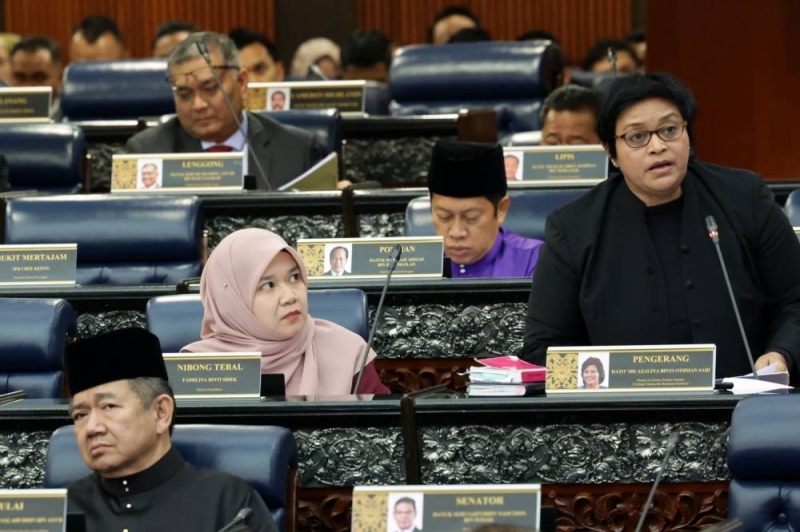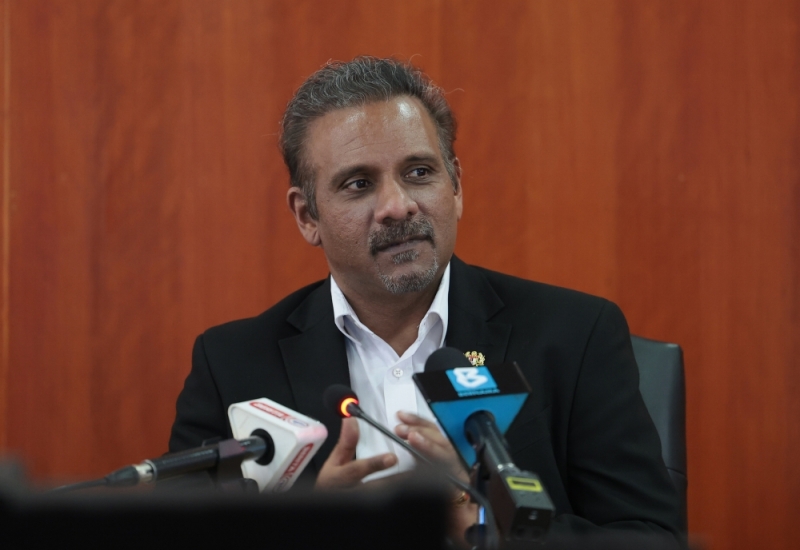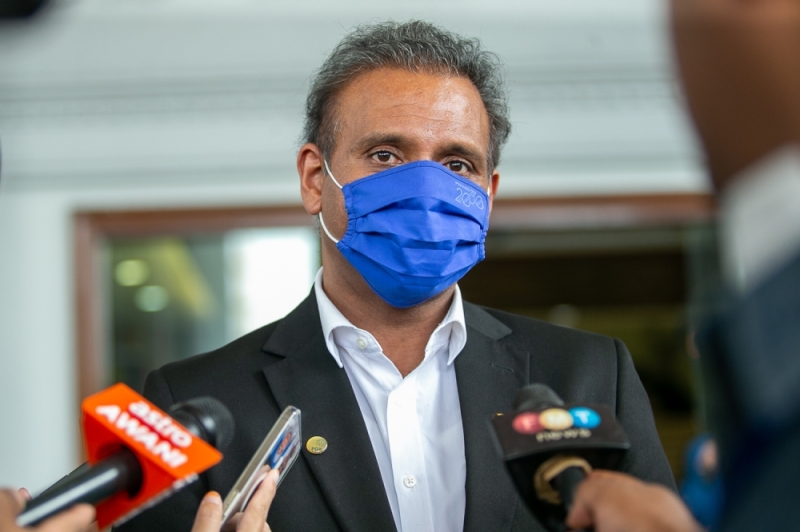Media Statement – 28/3/2023
Removing Mandatory Death Penalty And Mandatory Life Imprisonment Is Just, And Increases Chances That Those Who Ordered Or ‘Paid’ For Death Will No Longer Escape Justice
MADPET (Malaysians Against Death Penalty and Torture) welcome the tabling of the Abolition of Mandatory Death Penalty Bill 2023 in Malaysian Parliament on 27/3/2023. This Bills will finally bring about the abolition of mandatory death penalty on 27/3/2023. With mandatory death penalty offences, on conviction, judges had no choice but to sentence to death.
If the Bills tabled becomes law, judges will finally have the option and discretion to impose the death penalty or “or imprisonment for a term of not less than thirty years but not exceeding forty years and if not sentenced to death, shall also be punished with whipping of not less than twelve strokes”.
MADPET is against corporal punishment, and urge that whipping be removed.
With the mandatory death penalty, accused are less likely to reveal who paid or ordered them to kill, as they will still be sentenced to death and will be hanged to death. This situation allowed for many accomplices including those that asked or paid them to kill to escape justice.
We recall the Altantuya Shaariibuu, where many believed that the 2 policemen Sirul and Azilah who have been convicted for murder, had acted on the order or instructions of third parties.
With the mandatory death penalty, the disclosing information or evidence which could lead the one who ordered or ‘paid’ for the killing Altantuya be identified and prosecuted, really will not safe the 2 from being hanged.
As such, with the amendments, where there is the possibility of sentences other than death, the chances of accused persons revealing evidence of accomplices increases – where such corporation with law enforcement would likely mitigate the sentence, and they may evade the death penalty.
This will end situations where the one who paid or ordered someone to be killed escapes.
Therefore, MADPET urges the government to consider amending the lower limit of imprisonment of 30 years to maybe 15-20 years, as this may assist prosecution and increase chances of ALL involved in the murder being brought to justice.
MADPET is also of the position that death penalty should be restricted to offences that actually directly caused the death of the victim. The actual killer may be imposed a higher sentence, but other accomplices who did not actually kill be given lower sentence. Of course, the person who ordered or ‘paid’ for a person to be killed should be given the highest sentence – for if not, for the action of that person, no one will be killed.
MADPET opposes the death penalty as there is a serious risk of miscarriage of justice. Judges are human and not infallible. There are so many other reasons that support abolition. Malaysia had in 2018, 2020 and 2022 also voted in favour of the UN General Assembly Resolution towards abolition of the death penalty.
In 2009, the High Court found Sirul and Azilah guilty of murder. Then in 2013, a 3-member panel on Malaysia’s Court of Appeal unanimously decided that the conviction of the 2 had been unsafe, and acquitted them. The Court of Appeal said that certain evidence was not considered, and was also concerned that motive was never established. (Reuters, 23/8/2013) Then, in 2015, the Federal Court overturned that COA decision, and reinstated the High Court’s conviction and mandatory death sentence.
Then, on 8/12/2020, the Federal Court dismissed Azilah Hadri’s application for a retrial and review of his 2015 conviction over Mongolian Altantuya Shaariibuu’s 2006 murder, saying his own suppression of alleged instructions to carry out the murder did not lead to an exceptional situation warranting a review. One of the new issues raised was the alleged instructions from a “third party” to conduct murder. (Malay Mail, 8/12/2020)
However, there the Federal Court stressed on ‘the importance of finality of decisions for the administration of justice’. The Court apparently stated ‘“Now it must be emphasized that he kept silent about this so-called new evidence during his investigation, during trial in High Court and appeals at Court of Appeal and also Federal Court.’
MADPET is concerned that the accused may have kept silent because of threats or ‘promises’ to himself and his family. Further, revelations that you killed because you were given instructions to kill by some other will NOT save you from conviction and the mandatory death penalty.
Further, many a lawyer would advise clients in criminal trial to remain silent, and the law also acknowledges this right even in police questioning, where a ‘…person may refuse to answer any question the answer to which would have a tendency to expose him to a criminal charge or penalty or forfeiture….’(Section 112(2) Criminal Procedure Code).
If the death penalty is abolished, and there is a flexibility of sentences no more just a mandatory death penalty, or a death penalty or a mandatory life imprisonment, then accused persons will more likely corporate and reveal accomplices so that their sentence can be reduced.
Hence, there is still doubt on the guilt of Sirul and Azilah’s case? Was there miscarriage of justice? Miscarriage of justice happens also when the ‘guilty’ escapes prosecution.
MADPET also believes that application for retrial, reviews and even submission of additional evidence need to be made easier to ensure justice be done. That is more important than the finality of decision.
In the Altantuya matter, we also note that the High Court in a civil matter, found that, besides Sirul and Azilah, political analyst Abdul Razak Baginda was also found liable to the claim of unlawful killing of the deceased(Altantuya). The government was also vicariously liable as Sirul and Azilah were then police officers. They were ordered to pay ‘…RM5 million in general, aggravated and exemplary damages to the deceased's family,”(Edge Markets, 16/12/2022).
It is a sad situation that very view victims of crime in Malaysia commence civil suits against perpetrators of crime. For murder victims’ family, a civil suit which will allow them to get monetary compensation will bring about some justice for family members and dependents. They should simply not just be satisfied with the death penalty, prison sentence, whipping or fines imposed on the convicted.
MADPET welcomes the tabling of the Abolition of Mandatory Death Penalty Bill 2023, but calls for the death penalty to be abolished.
MADPET also calls for the abolition of the corporal punishment of whipping, and calls on the government of Malaysia to amend the Bill, and remove whipping. Whipping in Malaysia is torture and inhumane and could even result in long term physical and psychological damage. It is very different from the whipping as practiced in Syariah law.
MADPET reiterates the call for the speedy passing and putting in force of this law, for until then, all those who commit mandatory death penalty offences will still face the mandatory death penalty. Providing for retrospective effect of laws may not work.
Charles Hector
For and on behalf of MADPET(Malaysians Against Death Penalty and Torture)
Malaysia court overturns convictions in grisly, high-profile model's murder
KUALA LUMPUR (Reuters) - A Malaysian court on Friday overturned the conviction of two policemen found guilty of shooting and blowing up a Mongolian model linked to a former associate of Prime Minister Najib Razak.
The release of the officers, who were part of Najib’s personal security detail at the time of the 2006 murder of 28-year-old Altantuya Shaariibuu, appears to distance the prime minister from the case.
But the ruling also revived public outrage over her mysterious death and raises further questions as Najib prepares for a possible leadership challenge from within his ruling party in October.
A three-member panel on Malaysia’s Court of Appeal unanimously decided that the conviction of Chief Inspector Azilah Hadri and Corporal Sirul Azhar Umar had been unsafe.
Among the grounds cited were that a key witness, Najib’s then aide-de-camp, hadn’t been called to give evidence and that a police diary that may have given one of the men an alibi hadn’t been considered.
“It is our judgment that the cumulative effect of the non-directions by the learned trial judge rendered the conviction of the appellants unsafe,” state news agency Bernama quoted one of the three judges, Justice Tengku Maimun, as saying.
The high court that found the policemen guilty and sentenced them to death in 2009 never established a motive for the crime. Najib’s one-time close associate, Abdul Razak Baginda, a political analyst, was charged with abetting the murder but was acquitted in 2008.
Civil society groups and Malaysia’s political opposition have alleged that Altantuya’s killing was connected to her role as an interpreter and associate of Razak Baginda in Malaysia’s purchase of two Scorpene-class submarines from French shipbuilding giant DCNS in 2002.
Najib, who was defence minister at the time, has strenuously denied allegations of corruption in the purchase and of having any links to the murdered woman.
But his government has declined opposition requests for a public inquiry into the case - which is currently the subject of a French investigation - and has only given brief responses to questions raised in parliament.
Documents, including records seized by French prosecutors in a raid on DCNS’s offices, detail payments made to two companies set up by Razak Baginda, but there has been no evidence linking Najib directly to corruption in the deal.
“The verdict this morning calls for nothing short of full and fresh investigations,” said Cynthia Gabriel, an activist with the rights group SUARAM, which is a plaintiff in the French investigative court case.
“SUARAM questions whether her brutal death was linked to the allegations of corruption in the Scorpene deal,” she added.
Many people took to Twitter and other sites to voice anger and disbelief over the still unresolved saga. Altantuya was blown up with military-grade explosives.
“A woman was killed using explosives. No one is found responsible for her death. Where is justice?” tweeted one person with the username @1Obefiend. (Reporting By Siva Sithraputhran; editing by Stuart Grudgings and Nick Macfie)
Federal Court rejects Azilah's bid for retrial in Altantuya murder, says he kept silent on alleged instructions to kill

PUTRAJAYA, Dec 8 ― The Federal Court today dismissed former police commando Azilah Hadri’s application for a retrial and review of his 2015 conviction over Mongolian Altantuya Shaariibuu’s 2006 murder, saying his own suppression of alleged instructions to carry out the murder did not lead to an exceptional situation warranting a review.
In delivering the five-man panel’s unanimous decision, Chief Judge of Malaya Tan Sri Azahar Mohamed said Azilah had in his October 17, 2019 application asked the Federal Court to review and set aside its own January 13, 2015 decision to convict Azilah on the murder.
“Under the scheme of the Federal Constitution and the Courts of Judicature Act, it is patently clear that a final decision has been given on this matter when this court heard and deposed the appeal by Azilah on January 13, 2015. In other words, it’s a final conclusion,” the judge said.
Stressing the importance of finality of decisions for the administration of justice, Azahar said that there should be no further appeal once the Federal Court delivers its decision as it is the apex court of the country, but noted that the Federal Court however has powers under Rule 137 of the Rules of Federal Court to review its own decision.
“The legal principles in respect of the court’s review power is well-established, the power to review is to be used sparingly and only in circumstances which can be described as exceptional,” the judge said.
Rule 137 of the Rules of the Federal Court is regarding the inherent powers of the Federal Court to “hear any application or to make any order as may be necessary to prevent injustice or to prevent an abuse of the process of the court”.
The judge noted, however, that Azilah’s review application was based on purported new evidence that was not presented during the Altantuya murder trial, making a reference to Azilah’s October 2019 statutory declaration of alleged instructions from a “third party” to conduct murder. The judge did not mention Datuk Seri Najib Razak’s name, but only described the origin of alleged instructions as being from a “third party”.
“Now it must be emphasised that he kept silent about this so-called new evidence during his investigation, during trial in High Court and appeals at Court of Appeal and also Federal Court.
“Indeed, this so-called material evidence which was available before the High Court trial and three levels of court was deliberately suppressed by the applicant himself, he himself withheld the so-called evidence from the police, his lawyers and the courts.
“Clearly in our judgment, the introduction of so-called new evidence is not in accordance with established legal principles,” the judge said.
“We are of the view on the face of records it has not been shown there was injustice in the present case,” the judge said, adding that there is no grounds to show there was breach of natural justice or miscarriage of justice.
“And in our judgment, there’s no exceptional circumstances for a review under Rule 137. We therefore dismiss this review application,” he concluded.
The other judges on the Federal Court’s panel today were Datuk Seri Mohd Zawawi Salleh, Datuk Vernon Ong Lam Kiat, Datuk Zaleha Yusof, and Datuk Zabariah Mohd Yusof.
The dismissal of the review application will mean that the Federal Court’s decision in 2015 to convict Azilah still stands.
Today was the hearing of Azilah’s application for the review of the Federal Court’s January 2015 decision to convict and sentence him and another to death over the murder of Altantuya.
Earlier, lawyer J. Kuldeep Kumar argued that his client Azilah was unable to give the same alleged evidence in court previously of the purported secret mission he was ordered to go on to kill Altantuya who was purportedly a foreign agent.
Kuldeep said Azilah was “under impressions it was a covert operation and it was supposed to be a secret mission and that the deceased in this case is a foreign agent and possesses national secrets and (is a) threat to national security”.
“And this evidence was unable to be adduced at the trial on the basis that this was a covert operation and therefore he would be acquitted. He never divulged this...and he never put forward this version before the court,” he said, before going on to read excerpts from Azilah’s statutory declaration and affidavit on why the former police officer was unable to provide the same evidence previously in court.
Kuldeep at one point initially suggested that there was procedural unfairness, but then clarified that the situation was not one of procedural unfairness, noting: “The position is he was unable to give that evidence during the trial”.
Deputy public prosecutor Datuk Mohd Dusuki Mokhtar noted, however, that Azilah’s inability to produce evidence due to his own suppression of evidence “is not considered as an exceptional and rare circumstance under Rule 137”.
“We need limited and very exceptional circumstances to urge this court to exercise its power under Rule 137. We find none in this motion filed by the learned counsel and the applicant (Azilah),” he said, referring to Azilah’s motion or application for review of the Federal Court’s 2015 decision.
“And with regard suppression, nobody actually suppressed the evidence. He himself withheld the evidence to be produced. It’s not limited and exceptional circumstances to allow for this court to exercise its power under Rule 137,” he argued.
Dusuki highlighted that it has been almost five years since the murder conviction, noting: “Within that period of time, there was a long time for the applicant to think about that, to disclose whatever he himself suppressed.”
Following the arguments presented by Kuldeep and Dusuki, the Federal Court delivered its decision on Azilah’s review application.
Later when met outside the courtroom, Tan Sri Muhammad Shafee Abdullah who was holding a watching brief for former prime minister Najib said he was “satisfied” as a whole on the Federal Court’s decision to reject Azilah’s application.
Commenting on Azilah’s review application and the court’s decision today, Shafee said that there would not be procedural unfairness or deprivation of fair proceedings for Azilah in the Altantuya trial if there was suppression of facts by Azilah.
Shafee pointed out that an application for review is different from an application to present further evidence in court, noting: “In the review you cannot adduce further evidence. In the review, it’s a challenge on procedural fairness, not on the facts.”
When asked about the statutory declaration by Azilah which had named Najib as purportedly giving instructions for Altantuya’s murder, Shafee said: “So what will happen is the statutory declaration now is in the court, we are considering to apply to expunge or not, we are considering because whether it is worthwhile doing it or not.”
Shafee also said that the court’s decision today has no impact on Najib, as the Altantuya murder case that went through the police and the courts did not implicate him.
Lawyers Sangeet Kaur Deo and Harshaan Zamani today also held a watching brief for the family of Altantuya in the hearing of Azilah’s review application.
In December 2019, Azilah had filed an application to the Federal Court to seek for a review of his conviction and death sentence in 2015 over Altantuya Shaariibuu’s 2006 murder, and also sought for a retrial by having the case sent back to the High Court to be heard again. Azilah’s review application had named the public prosecutor as the sole respondent.
In Azilah’s statutory declaration dated October 17, 2019 and published in full by news portal Malaysiakini in December 2019, the former police Special Action Unit (UTK) officer claimed that Najib as the then deputy prime minister had in 2006 allegedly given him the orders to kill Altantuya and dispose of her body with explosives.
Najib had previously dismissed Azilah’s claims as a “complete fabrication” and maintained his innocence while also welcoming police investigations into the allegations.
In January 2015, the Federal Court reversed the Court of Appeal’s August 2013 acquittal of Azilah and former police commando Sirul Azhar Umar, reinstating the High Court’s April 2009 conviction and mandatory death sentence on the duo over Altantuya’s murder.
Azilah has been on death row in Malaysian prisons since
then, while Sirul did not show up in court for the Federal Court
decision and was later found in Australia where he is believed to remain
under detention by Australian authorities until today. - Malay Mail, 8/12/2020
Azilah, Sirul, Razak Baginda and Govt found liable in Altantuya's death, ordered to pay RM5m damages

SHAH ALAM (Dec 16): The High Court here on Friday (Dec 16) found political analyst Abdul Razak Baginda, then chief inspector Azilah Hadri and then corporal Sirul Azhar Umar to be liable for the death of Altantuya Shaariibuu 16 years ago, and hence the Government was also found to be vicariously liable.
Court of Appeal judge Datuk Vazeer Alam Mydin Meera, who was sitting as a High Court judge, ruled that all four hence need to pay damages, but said the amount of RM100 million sought by the family of the slain Mongolian was excessive.
“Hence, the court awards damages to be paid jointly by all four defendants (Azilah, Sirul, Abdul Razak and the Government) of RM5 million in general, aggravated and exemplary damages to the deceased's family,” he ruled.
He ordered that the damages be charged at 5% interest from the date of the filing of the lawsuit, until the full settlement of the amount.
Vazeer Alam also ordered that all four defendants pay RM25,000 costs each.
The proceedings done via the Zoom application were also monitored by Mongolian embassy officials.
The family was represented by Sangeet Kaur Deo, Tan Chee Kian, and Simranjit Kaur Chhran, while Azilah and Sirul were not represented.
Lawyers P Mithran, Avtaran Singh and Eshwinder Kaur Gill appeared for Abdul Razak, while senior federal counsel Zetty Zurina Kamaruddin and federal counsel Khairuddin Amhar Mahmud represented the Government.
Lawsuit filed in 2007, a year after murder
Altantuya's father Dr Shaariibuu Setev, her mother Altantsetseg Sanjaa, and the deceased's two sons, Mungunshagai Bayarjargal and Altanshagai Munkhtulga, filed the lawsuit on June 4, 2007, claiming that the model's death resulted in them suffering mental shock and psychological trauma, and sought compensation as well as exemplary and aggravated damages.
They named two former members of the Special Actions Unit attached with the police force, namely Azilah and Sirul, as well as Abdul Razak and the Malaysian Government as defendants.
However, Altanshagai's name was removed from the list of plaintiffs after he died in 2017.
A total of 26 witnesses for the plaintiffs, including Altantuya's father and eldest son, testified in the trial that began in 2019. The Government presented three witnesses, while Abdul Razak chose not to testify.
Altantuya was killed in Puncak Alam in the early morning of Oct 19, 2006, and Azilah along with Sirul were found guilty with the grisly murder. At present, Azilah is on death row at the Kajang Prison, while Sirul has left the country, and is said to be detained at the Australian immigration centre in Wollongong.
Meanwhile, Abdul Razak, who was charged with abetting with the murder, was acquitted without his defence called.
Vazeer Alam in his broad grounds said although Abdul Razak had chosen not to testify and denied liability, the court found him liable to the claim of unlawful killing of the deceased.
He said the court had considered and found that Abdul Razak had a case to answer, as he had sought the assistance of both Azilah and Sirul to deal with the deceased.
“There was no reasonable motive for Azilah and Sirul to kill the deceased. The only link was the third defendant (Abdul Razak), who wanted to stop harassment [by Altantuya],” the judge added.
In relating the events, the court said Altantuya had come to Malaysia to seek compensation for translation work.
Although the court did not relate what was the translation work, past revelations said this was in relation to the purchase of the two Scorpene submarines that Malaysia had acquired from France.
Abdul Razak, the court said, sought help from Deputy Superintendent Musa Safri, who was the aide-de-camp to then deputy prime minister Datuk Seri Najib Razak, to deal with Altantuya, and hence Azilah was dispatched to meet the political analyst.
It was during this meeting that Azilah related that he could "habiskan perempuan itu" (finish off the woman) and admitted that he had done this several times.
Why the court found Abdul Razak liable
The judge said as Abdul Razak had chosen not to testify, the court had to rely on his Section 112 statement recorded by the police, which showed that he sought assistance from Azilah to stop his family from being harassed, and the court found this reason hollow.
Vazeer Alam said Abdul Razak had admitted that Azilah told him the policeman could "habiskan perempuan itu", and the political analyst replied "perkara sebegini kita jangan fikir" (we should not think of such things).
“He (Abdul Razak) nevertheless continued to seek Azilah’s assistance to deal with the deceased when she showed up outside his residence that fateful night.
“On the night of Oct 19, the deceased was made to come alone to Abdul Razak’s home. Abdul Razak’s hired private investigator P Balasubramaniam then called him, who was having a meal with his family at a hotel.
“Abdul Razak then called Azilah on the phone, and told him that the deceased was outside his house. Azilah then told Abdul Razak that he will go to his house. Abdul Razak then called Balasubramaniam, and told him to keep the deceased there until Azilah arrived. It was then that Azilah arrived at Abdul Razak’s house to take her in the car to Puncak Alam and ultimately kill her.”
The judge said when the evidence is considered as a whole, the court found that there is a case against Abdul Razak, as his own private investigator had advised him to lodge a police report and have Altantuya deported.
“Instead, Abdul Razak proceeded to enlist the assistance of a self-confessed killer to deal with the deceased. Even Azilah had told the third defendant (Abdul Razak) that he can 'habiskan perempuan itu', he did not stop enlisting Azilah’s assistance.
“The first defendant (Azilah) did not know the deceased. There was no reasonable motive to kill the deceased, and the only link was the third defendant (Abdul Razak), who wanted to stop the harassment,” the judge said.
The judge added that there was no motive for Azilah and Sirul to kill Altantuya and blow her up with high-grade explosives.
“In the circumstances, I find that the plaintiffs have successfully proven on a balance of probabilities that Abdul Razak had a culpable role in the death of the deceased. If not for Abdul Razak, Azilah and Sirul would not have taken the deceased in their car from his residence and ultimately kill her.
"This court also found the fourth defendant (the Government) to be vicariously liable, as the two defendants carried out the killing in the capacity when they were policemen. Judgement is entered on liability,” the judge added.
The High Court in finding Azilah and Sirul guilty of the murder ruled and found there was no motive for the killing.
The Court of Appeal in a unanimous judgement written by then judge Tun Tengku Maimun Tuan Mat, who is now the Chief Justice, then acquitted Azilah and Sirul.
However, a five-member Federal Court overturned the decision in January 2015, and found both of them guilty of the murder. At that time, Sirul had already left the country.
Azilah and Sirul led the police to the scene of the crime separately, as Azilah was first arrested a few days after the murder, while Sirul was arrested on Nov 6, 2006, after returning home from official duty overseas. On his return, Sirul also led the police to the same murder scene.














